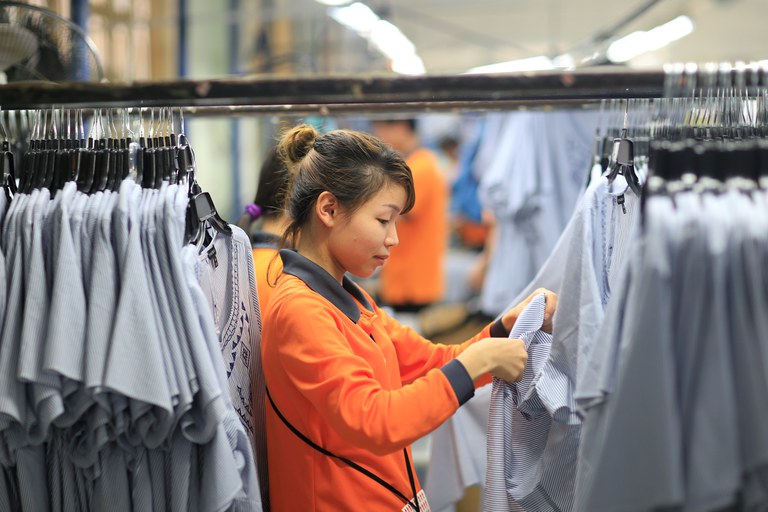Why we need to talk more about due diligence
Due diligence legislation is about how companies can be held legally accountable for what happens in their supply chains. This is timely, because businesses play a key role in building a fair and sustainable economy and society. The Higg debate is about how brands can credibly report on their sustainability impacts. This is also timely because it raises the question of honesty in the debate about corporate sustainability reporting, which is often heavily reliant on demonstrating presentable data at the expense of understanding context (in this case, the complexity of apparel supply chains and the environmental and social risks therein).
They may seem like two different topics, but at their core, both issues are about brands knowing what is happening in their supply chains and the conditions under which their products are made.
Kim Van Der Weerd, Intelligence Director at the Transformers Foundation, recently published an op-ed titled "The Higg Data Debate: No Room for Context, Imagination or Co-Creation." In it she asks whether the Higg Materials Sustainability Index (MSI) controversy is really the most important debate the industry should be having when it comes to the materials used in apparel production. [Background: the MSI, a consumer-oriented product labeling tool, had come under fire for alleged "greenwashing." Click here to read the full story.
Instead, she asks whether the real question to be addressed is how the industry can reduce the fundamental length and complexity of its supply chain, so that brands and retailers can actually regain their understanding of how and where their clothes are produced.
Even though the hook in Van der Weerd's text is the HIGG index, it reveals the paradox of an industry which is "not talking about the elephant in the room,” that is, that "long, complex, and unwieldy supply chains are a choice, not an inherent state of play. What is meant here is that the industry -led by brands and retailers- have chosen to be footloose as a way of reducing financial risk, in an arrangement that sees risks instead passed down the supply chain to the suppliers in global production hubs (like in Asia). Suppliers, in turn, tend to cope with this by further offloading as much of that risk as possible, with the burden eventually falling most heavily on the most vulnerable -the workers. One major result of this process is that supply chains get longer and more complex.
In a fact check, the Confederation of the German Textile and Fashion Industry has illustrated the complexity of the textile supply chain using the example of a men's shirt, the production of which, including logistics, involves 140 companies: e.g. cotton from India, yarn production in Korea, weaving of the fabric in Thailand, finishing in Germany, ready-made production in Turkey and distribution to many countries, including the respective supply routes. In addition, there are the supply chains of buttons, labels, interlinings, sewing thread, etc. For more complex garments, the chain is even longer.
This brings us back to supply chains and due diligence and how this debate can be taken further in our industry. Van der Weerd provides some food for thought that is worth highlighting.
If we know that it is the complexity and lack of transparency that (at least partially) drive adverse social and environmental outcomes in the apparel supply chain, why don't we simply try to reduce that complexity? After all, as van der Weerd describes it "triggering supply chains to contract isn’t rocket science, it simply requires more equitably distributed financial risk."
Against this backdrop, Van der Weerd argues that the industry should start talking openly about how to share financial risk, and by extension, think too about the role legislation should play in the process. "Due diligence legislation should force brands to show they've thought about how their behaviour affects their suppliers, not how effectively brands control their supply chains", she adds. (Read more here)
Doesn't this suggest that the proposed EU Due Diligence directive could be just the right law to put these ideas into practice? Perhaps not. Already, civil society and other labour groups have criticized the EU proposal, arguing that in addition to spotty coverage (it covers mostly large firms only) and vague climate commitments, it also lacks binding rules for enforcement and leaves the burden of proof entirely on victims.
As such, if the proposed law is waved through in its current state, then opponents argue that all too little will change for the most vulnerable in the industry. However, for its proponents, the law remains an important step forward in advancing corporate accountability and respect for human rights and the environment along global supply chains. For the most part even they can agree one thing, however: that it shouldn't just stop there, and that far more improvements will need to be made to fully redress the imbalances the industry has created for itself.

